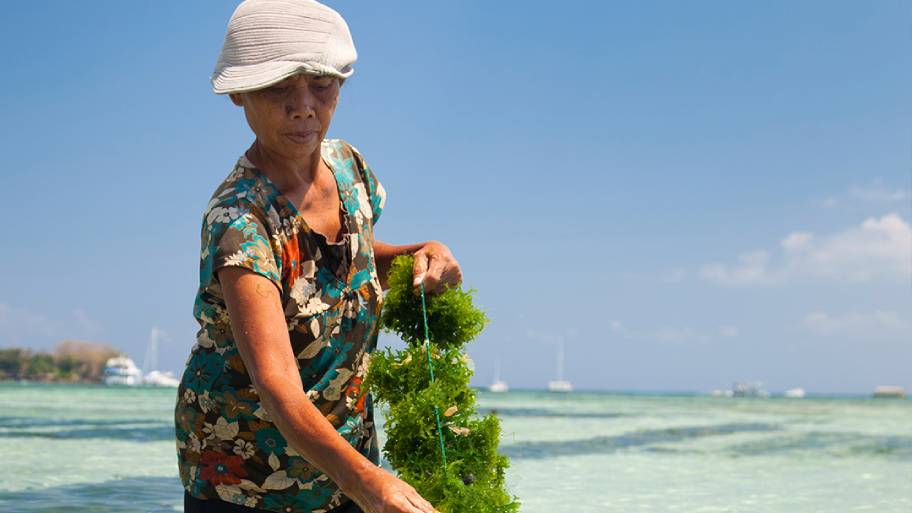Seaweed is generally considered to be a sustainable seafood choice. It is abundant, grows quickly, doesn’t need to be fed, and is often harvested with minimal environmental impacts. However, a 2016 United Nations University report pointed out that seaweed production is in a period of unabated exponential growth. Over 30 million tonnes of seaweed were produced in 2015. While aquaculture amounts for much of this production, over a million tonnes of wild seaweed is harvested annually. Any industry has the potential to go wrong when undergoing this kind of rapid, unchecked expansion.
According to a new report published by business analysis group Allied Market Research, the global seaweed market was valued at $4.1 billion in 2017 and is projected to reach $9.1 billion by 2024. While around 85% of all production is destined for human consumption, seaweeds are also widely used in cosmetics, fertilizers, thickening agents and animal feed.
Huge variety and high demand
Over 200 species of seaweed are of commercial value. You have probably come across many of these products, whether you know it or not. These include brown seaweeds, giants found in underwater kelp forests; red algae, often used for nori in sushi rolls; and microscopic blue-green algae, popular in marine-based beauty creams.
This increasingly varied demand could lead to overexploitation of wild seaweed, potentially leading to a slew of problems. As a primary producer, seaweed plays a key role in aquatic ecosystems. Removing it could lead to coastal erosion, negative impacts on marine food webs and habitats, loss of biodiversity and decreased water quality. Environmental impacts from irresponsible aquaculture could include water pollution, damage to local ecosystems and the decline of wild stocks.
Third-party certification can help to future proof this rapidly expanding industry by recognizing and rewarding seaweed production that is both environmentally sustainable and socially responsible.
The Seaweed Standard
The ASC-MSC Seaweed Standard sets a number of requirements under five key principles for seaweed harvesting and farming practices:
- Sustainable wild populations
- Environmental impacts
- Effective management
- Social responsibility
- Community relations and interactions
The aim of the Standard is to contribute to the health of the natural environment as well as support workers and local communities.
Seaweed production – whether through wild harvest or cultivation – is a valuable resource
for coastal communities. Increasing seaweed production also has the potential to take pressure off fish stocks and other sources of protein, contributing to food security globally.
The first certified sustainable seaweed
Last month, euglena Co. became the first seaweed operation in the world to gain certification for its seaweed production. Euglena is a type of microscopic algae. It is grown in a high-tech laboratory in Okinawa, Japan, where scientists keep a constant watch on vats filled with the bright green biomaterial. The alga is currently used in nutritional supplements, but owner Mitsuru Izumo has big plans for the future. He wants to use Euglena to make sustainable jet fuel. While this project is still in its research and development stage, we may yet see certified seaweed in our skies. Seaweed is at the beginning of its sustainability journey and will benefit from lessons learned in commercial fisheries and aquaculture. Certification is one tool to help ensure seaweed, and all the marine life that depends on it, is protected now and for future generations.Fast Facts
- 1 million tonnes of wild seaweed are harvested each year.
- 85% of seaweed production is destined for human consumption.
- Seaweed may soon be used in sustainable jet fuel.
- euglena Co. is the first seaweed operation in the world to gain ASC-MSC certification.
- The ASC-MSC Seaweed Standard recognizes and rewards environmentally sustainable and socially responsible seaweed production.
- The global seaweed market is projected to reach $9.1 billion by 2024.
- Seaweed production is a valuable resource for coastal communities.

